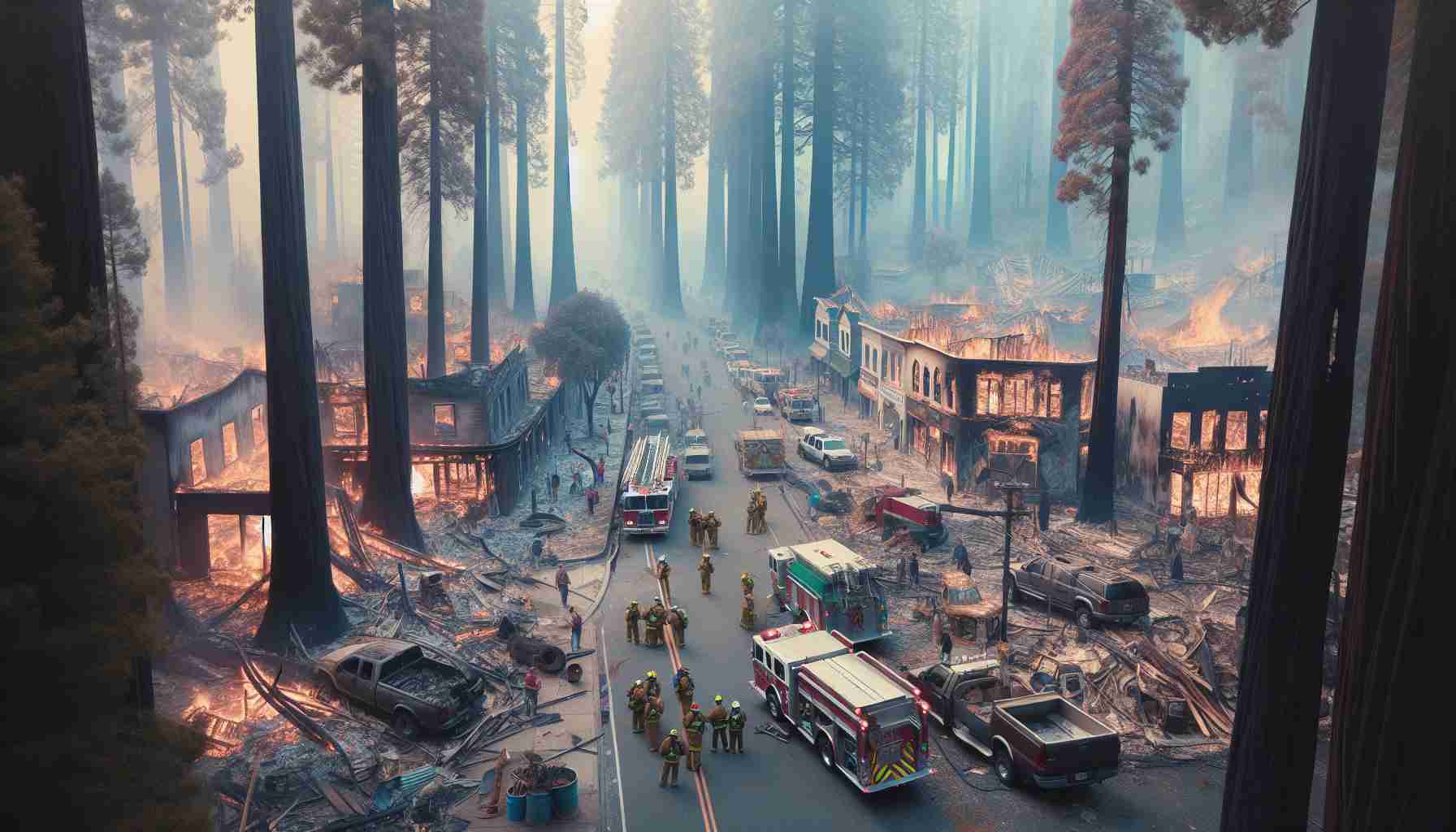In Redwood City, California, the aftermath of a significant fire that engulfed the affordable housing project at 2700 Middlefield Road has left the community reeling. The site, which was once a symbol of hope for many families, was reduced to ashes on June 3 during a massive eight-alarm blaze. Demolition teams are now busy clearing the debris left behind, marking a stark reminder of the tragedy that struck this neighborhood.
As the local community grapples with the consequences of this disaster, the Board of Supervisors has raised urgent concerns regarding the increasing difficulties families and businesses are facing in obtaining property insurance. The board has appealed to the governor for prompt intervention, highlighting the urgent need for solutions that address the housing and insurance crises that have emerged in the fire’s wake.
With growing anxiety about housing accessibility and insurance coverage, officials and residents alike are pushing for immediate action. This incident not only disrupted lives but also intensified scrutiny on existing policies governing affordable housing and insurance frameworks in the area. As the community rebuilds, the focus remains on ensuring that residents have the support and resources they need to recover and move forward.
Rebuilding After Tragedy: Tips and Life Hacks for Communities
In light of the recent fire in Redwood City, California, which devastated an affordable housing project, it’s important for communities to focus on recovery and resilience. Here are some valuable tips and life hacks, along with interesting facts, that can help communities rebound from disasters and foster a stronger, more supportive environment.
1. Create a Community Support Network:
Having a strong support system is crucial in times of crisis. Encourage local members to create groups focused on providing emotional and practical support. This could include organizing meet-ups, sharing resources, or simply being there for one another. Establishing a sense of community can significantly impact individual recovery.
2. Establish a Resource Hub:
Communities can benefit from a centralized location for resources post-disaster. This might include access to information about insurance, housing assistance, financial aid, and mental health services. A resource hub can be a physical location or an online platform where information is readily available.
3. Educate on Insurance Policies:
With concerns about property insurance on the rise, it’s essential to hold educational workshops. Invite insurance experts to discuss options, coverage, and claims processes. Knowledge is power, and understanding insurance can help families make informed decisions.
4. Promote Mental Health Awareness:
Disasters can take a significant toll on mental health. It’s crucial to prioritize mental health resources and encourage open conversations about emotional well-being. Organize community events that feature mental health professionals or support groups to address these needs.
5. Leverage Technology for Communication:
In the aftermath of a disaster, staying connected is vital. Utilize social media platforms, community apps, or local bulletin boards to disseminate information quickly. These tools can help keep residents informed about recovery efforts and support resources.
6. Local Fundraising Events:
Organizing fundraising events can help raise money for affected families and the overall community rebuilding effort. Consider hosting community fairs, online fundraising campaigns, or donation drives to gather both financial and material support.
7. Engage with Local Government:
Encourage residents to engage with local officials regarding their concerns and suggestions about housing policies and support systems. Building relationships with local government can lead to more responsive action and initiatives tailored to community needs.
Interesting Fact: Did you know that community resilience plays a key role in recovery after disasters? Studies have shown that communities with strong social ties and well-organized support networks recover faster and more effectively.
As Redwood City focuses on rebuilding, it’s clear that collective action and support can help the community overcome the challenges posed by the recent tragedy. By coming together, sharing knowledge, and taking proactive steps, residents can not only recover but grow stronger as a community.
For more insights on community resilience and recovery resources, visit Red Cross.
